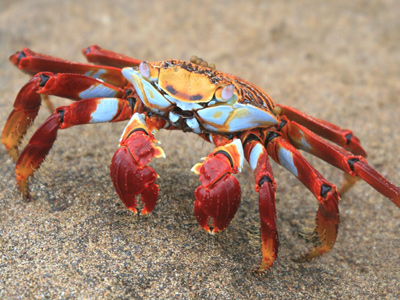
What was the sand like? Find out in this quiz!
Grammar - Conventions of Standard English - Adjectives
This English Language quiz is called 'Grammar - Conventions of Standard English - Adjectives' and it has been written by teachers to help you if you are studying the subject at middle school. Playing educational quizzes is a fabulous way to learn if you are in the 6th, 7th or 8th grade - aged 11 to 14.
It costs only $12.50 per month to play this quiz and over 3,500 others that help you with your school work. You can subscribe on the page at Join Us
An adjective is a word that describes, identifies or further defines a noun or a pronoun. In short, it is a 'describing' word. Let’s look at the following sentence: 'The tree is tall.' In this sentence we know that the 'tree' is a common noun.
What can we learn about the tree in this sentence? We learn that it is 'tall'. Tall' is an adjective as it describes the tree.
Let’s look at another example. 'The coat was huge on him.' In this sentence the 'coat' is the noun. Note that 'him' is a pronoun. We must then determine if it is the 'coat' or 'him' that is being described. As it is the 'coat', what do we learn about it? We learn that it is 'huge'. 'Huge' is the adjective.
A _________ snake scared my sister when she came out of the pool.
It is the _________ I have ever seen.
The cat looked _________ when I saw him.
The puzzle he finished was ___________.
The sand at the beach was __________.
Do you think learning adjectives is ______?
He ran over to the _________ soldier.
Grandma is always _______ when she receives a letter.
His new sneakers were ________.
The gum was stuck in his _____ hair.
Ready for more?
not all...
quizzers. Try to win a coveted spot on our Hall of Fame Page.







